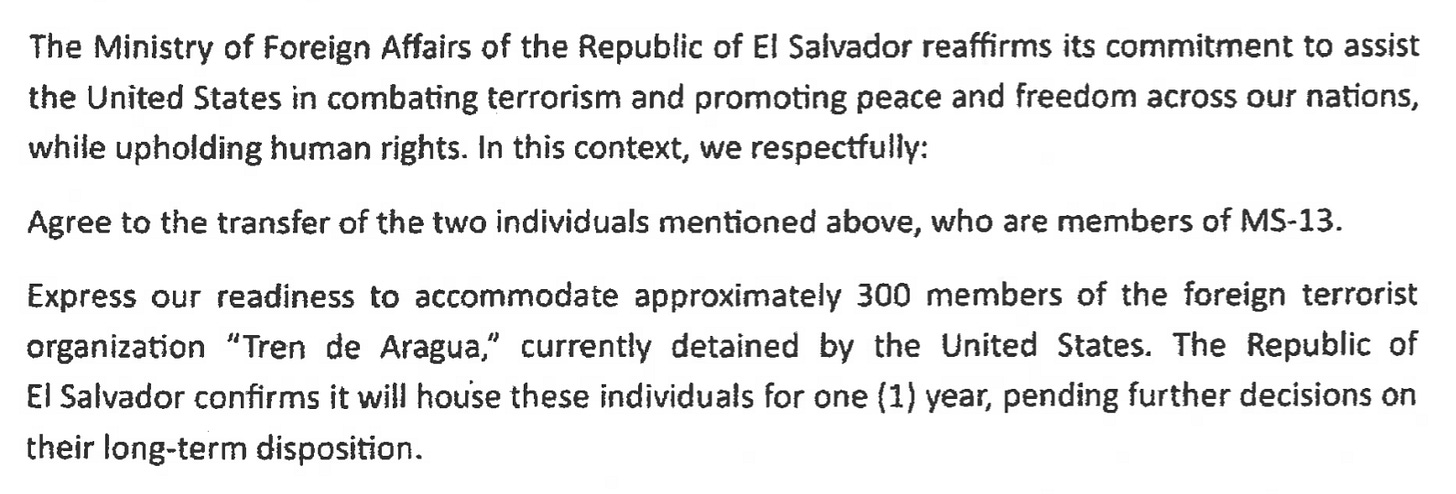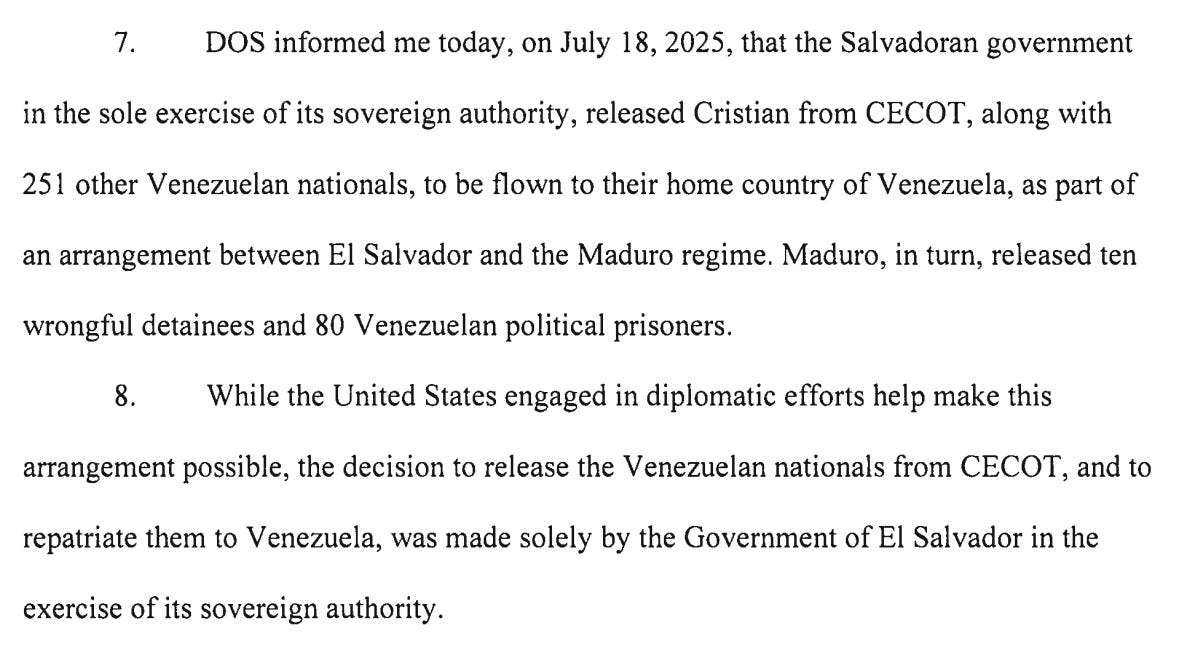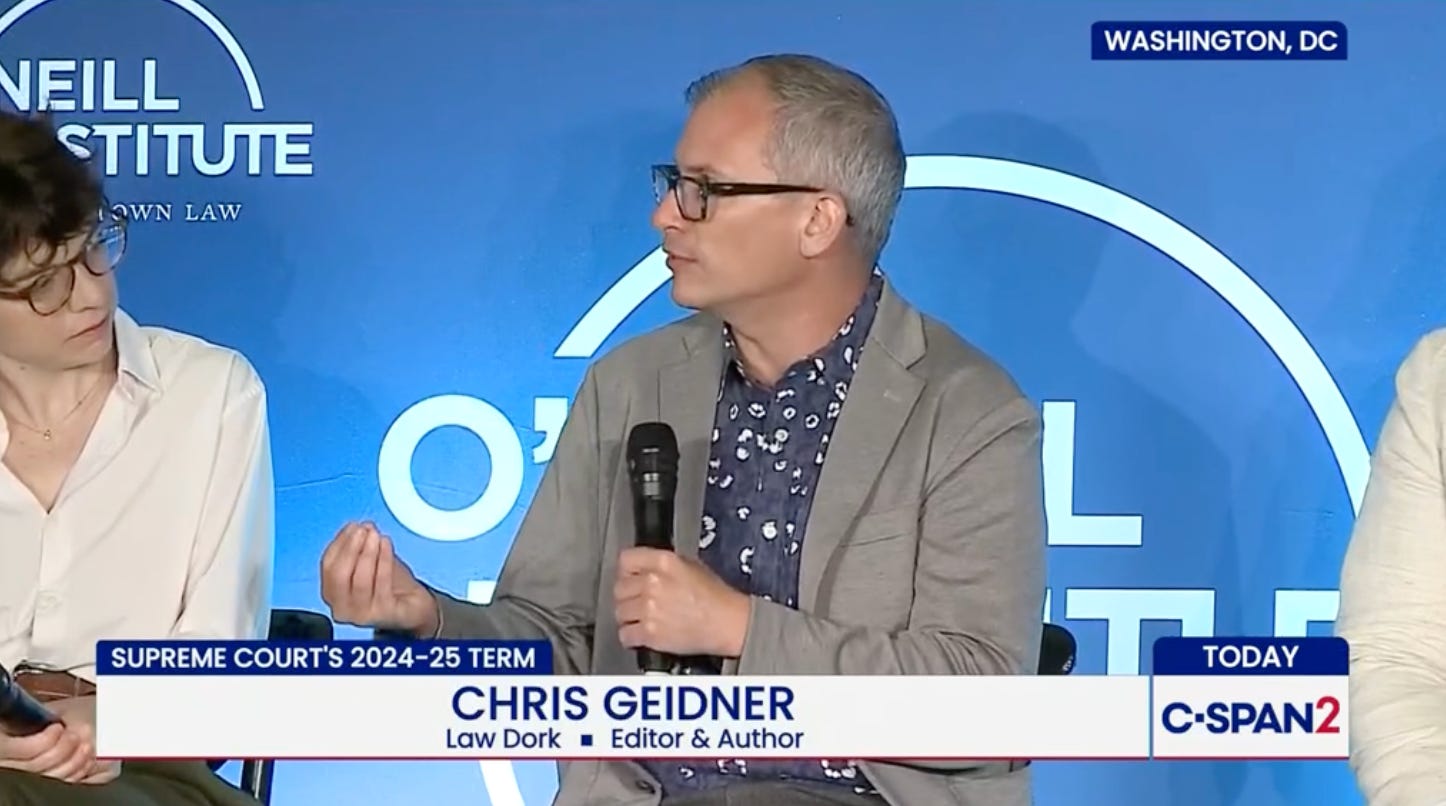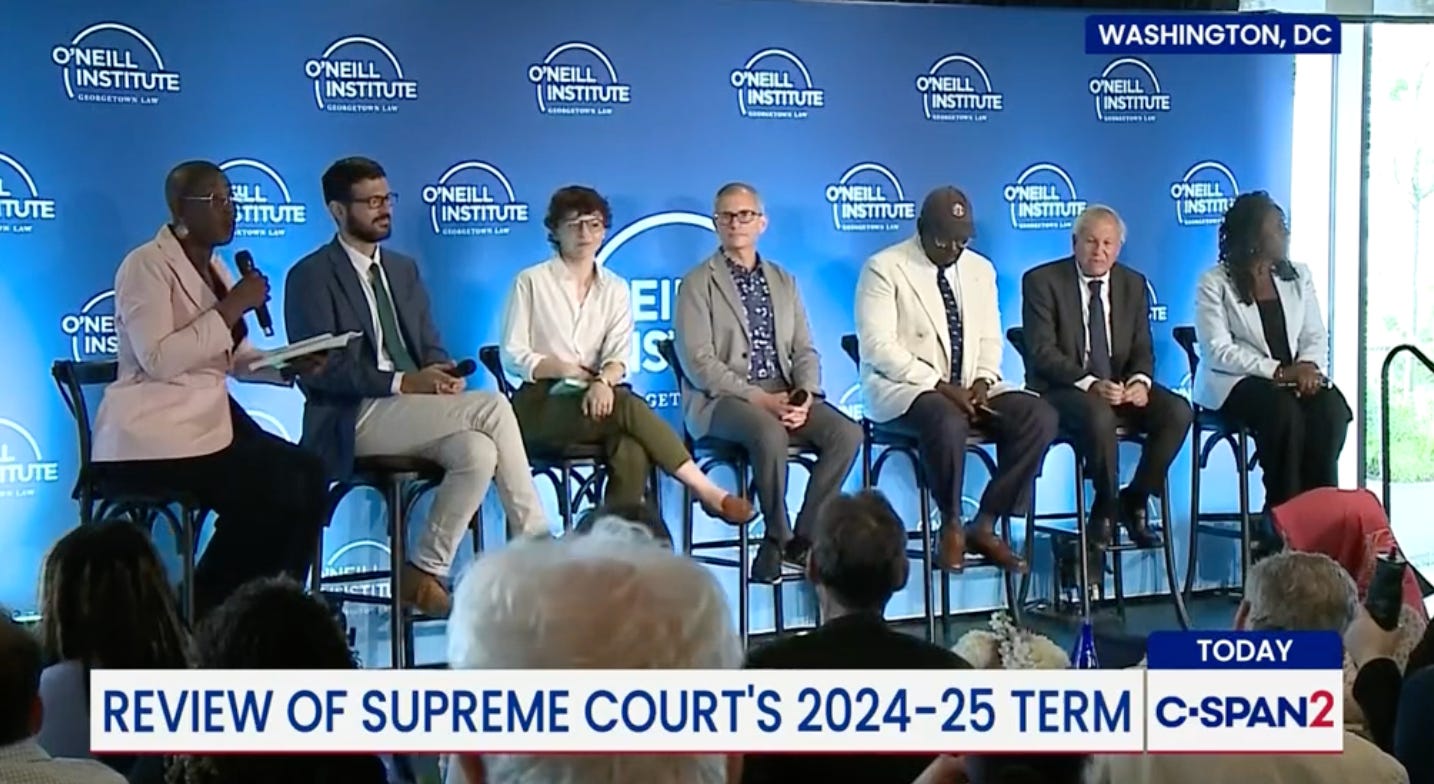Trump's CECOT prisoners were released, but the legal fight is nowhere near over
The Trump admin will have to answer eventually for its lawlessness. Also: Law Dork, looking back and looking ahead. And, for paid subscribers: Closing my tabs.
[Note: Some spoilers about one plot line of Superman (2025) in the first three paragraphs below.]
It was weird to watch Superman on Saturday night, given that the “fictional” government in the movie was accused of doing, more or less, what the Trump administration did to about 250 people over the past four months.
With the exception of shipping people off to a notorious prison in a foreign country instead of cages in a pocket universe, the point — a transfer of people, some of whom were there for no reason beyond the cruel whims of those in charge, to a law-free zone — was the same in both instances.
I saw the movie a little late, this Saturday, so it came after the Trump administration used these people as human pawns yet again.
[OK, no more Superman discussion below here.]
As the Washington Post led its story on July 18:
More than 250 Venezuelans deported in March by the Trump administration and flown to a high-security prison in El Salvador were sent home Friday in exchange for 10 American citizens and permanent U.S. residents imprisoned in Venezuela by the government of President Nicolás Maduro.
This echoes the agreement described by the government of El Salvador in a United Nations report, and serves as practical proof that the Trump administration repeatedly lied in court. The Justice Department, citing a declaration from a State Department official, has insisted that El Salvador had the final say regarding the people sent to El Salvador’s CECOT prison. El Salvador, however, told the UN that “the jurisdiction and legal responsibility for these persons lie exclusively with the competent foreign authorities” — as in, the United States.
Further, in now-unclassified documents first highlighted by Aaron Reichlin-Melnick, El Salvador’s minister of foreign affairs suggested the same:
Look at the distinction between how “members of MS-13” are described, as opposed to the so-called members of “Tren de Aragua.” While the former are “transfer[red] to El Salvador, the latter are “house[d] … “for one (1) year, pending further decisions on their long-term disposition.”
Now, however, the people were being released from CECOT — and sent to Venezuela.
As the lawyers in a class action settlement relating to asylum claims put it on July 18, regarding their client, Christian, whose return the Trump administration had been ordered to “facilitate” many weeks ago:
The U.S. government’s involvement in transportation of class member Cristian from El Salvador to Venezuela—a country from which he has sought asylum—would defy this Court’s April 23 order. It would also give the lie to the government’s repeated assertions that it lacks authority to immediately facilitate Cristian’s return, as this Court’s order requires. If, on the other hand, Cristian is in the process of being transported to the United States, Class Counsel has explained the need for prompt notice of Cristian’s return in order to ensure he is provided with the lawful adjudication on the merits of his asylum application that he is due pursuant to the Settlement Agreement.
In response, Mellissa Harper — the acting assistant director in the Removal Division of U.S. Immigration and Customs Enforcement’s Enforcement and Removal Operations — claimed on July 18 that the reality in front of our faces, even as told by the government of El Salvador to the U.N., is false.
There were many stories over the weekend about the joy of finding out that people whose whereabouts and safety have been in doubt since March 15 were still alive — an undeniable good.
And yet. The medium-term and long-term legal ramifications and consequences of these actions remain in serious question.
In addition to the incredibly important questions about whether the returning of any of these people to Venezuela violated U.S. or international obligations, there is a reality that — regardless of Harper’s claims — the Trump administration transferred people who had been in U.S. custody and, as such, the responsibility of the U.S. to an extremely dangerous foreign prison for more than four months before working to use those people as bargaining chips in a way that they would not have been able to do directly — again, even if we credit Harper’s claims, the U.S. “engaged in diplomatic efforts help make this arrangement possible.“
The Trump administration, whether in one of the court cases in which they claimed impotence for the past four months or at some later point in some other forum, will eventually have to answer for the lawlessness of the past four months.
Law Dork, looking back and looking ahead
Given how much has happened at the U.S. Supreme Court in July, it’s hard to believe it’s been less than a month since the court finished issuing its merits decisions for the term.
Those decisions, of course, already have and will continue to have significant effects on the nation. Here is the Georgetown Law Supreme Court Term in Review panel that I participated in on July 2, where we discussed the biggest decisions, what we thought about them, and where we were at in the aftermath.
Michele Goodwin, the O’Neill Professor of Constitutional Law and Global Health Policy at Georgetown Law, puts together an incredible event each year, and I am grateful to her for including my voice among a truly incredible group of people.
It is, also this Sunday, six months into the new Trump term. It has been expected in some ways, but it also has been a lot to do from a one-person perch — although I absolutely have lots of informal help that keeps me and Law Dork going.
That said, it’s been more than three years of doing this with little more than a few weekend breaks and trips to New York City (during which I am almost always still working).
As such, I am going to be taking a vacation, beginning Tuesday. I will, again, be doing some work on the front half of the trip — given the complexity of this time when I’m leaving, it will make me feel better to keep in the loop a bit — but I plan to take off completely at the beginning of August, when I’m going to Edinburgh Fringe Festival for the first time!
So, from Tuesday through August 6, expect me to be a little delayed (technically, ahead of you, if you’ll be in the U.S.) or, for a few days, off the grid completely.
This stresses me out more than it should, but I’m working on it. To get through this and do the best work I can do for you, though, it’s definitely the right choice. I need to unwind and unplug a bit here. There’s never a perfect time, but this is a time that at least works. So, I’m going for it.
Thank you all for making it so that I can even begin to think that this sort of a trip is possible in a newsletter world.
Closing my tabs
This Sunday, these are the tabs I am closing:







